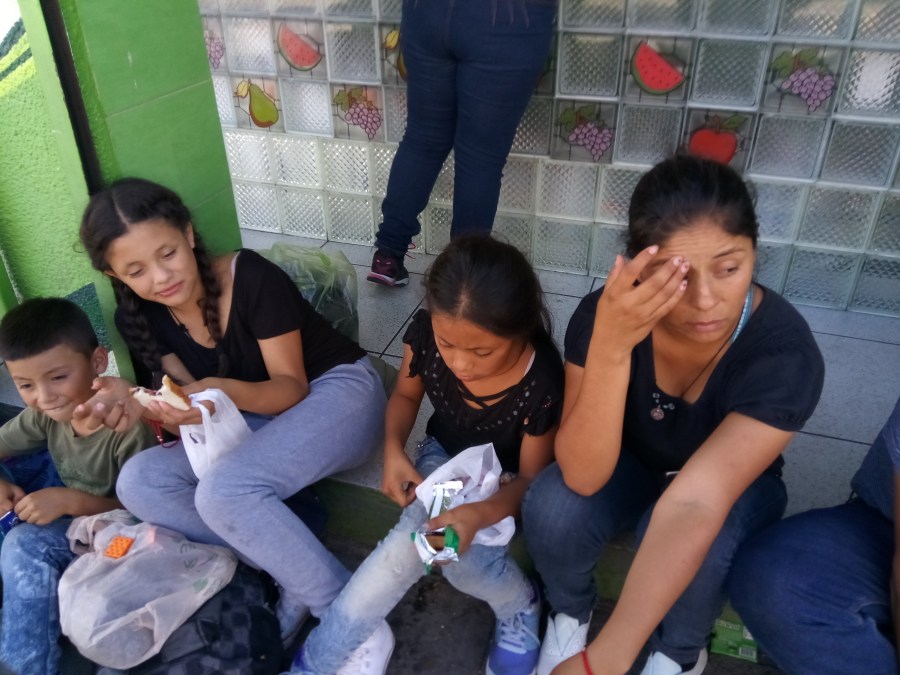JUAREZ, Mexico (Border Report) — Juarez officials have decided to help dozens of families who’ve been camping out at the foot of the Paso del Norte Bridge for more than a week, trying to apply for asylum in the United States.
Juarez Mayor Armando Cabada said free rides to and from migrant shelters would be offered to the Mexican families fleeing criminal gangs in West-Central Mexico. In addition, the city’s Human Rights Office will work with federal agencies on both sides of the border to ensure the migrants get the asylum interviews they seek.
“They are in their country, they have a right to free transit, so we cannot force them to go to shelters, but we will continue to explain the advantages of staying at an established shelter,” Cabada said.
The mayor added that Mexico’s National Immigration Institute and the Chihuahua state Population Council will speak to U.S. Customs and Border Protection regarding the logistics of the asylum process for Mexican citizens. Central Americans and other foreigners must register on a list in Juarez and wait for their number to be called by CBP. Mexicans are exempt from that process.
However, Human Rights Office director Rogelio Pinal spoke of a similar metering system for the sake of keeping order.
“It’s impossible to force them to do anything they don’t want but we’re asking them to go to a shelter with their children. They will be seen according to CBP’s resources and capacity. We already have a list of the families staying both at Paso del Norte and the Zaragoza Bridge,” he said.
Around 11 a.m. Tuesday, a large group of migrants previously staying on the sidewalk by the Paso del Norte Bridge were able to walk to the other side, according to witnesses. The sidewalk previously teeming with families that included small children was half empty.
“I saw about 40-50 people get up and go to the other side,” said Ivan R., a resident of Michoacan state who fled his home after being threatened by drug traffickers.
“There’s no safety in my town,” Ivan R. said. “They force you to pay a fee or to work for them.” He described the “work” as taking up firearms and “do things we shouldn’t do. … disappear people, kill people. Things like that.”

Most of the families interviewed by Border Report in the past few days said they came from the states of Zacatecas, Michoacan or Guerrero after having run-ins with organized criminal groups. Analysts say those states are in the area of influence of one group — Cartel Jalisco New Generation — which is trying to get control of highways and small towns along drug-trafficking routes. The group is also waging war on rivals in the mountains of Guerrero.
Visit the BorderReport.com homepage for the latest exclusive stories and breaking news about issues along the United States-Mexico border
















